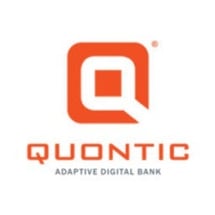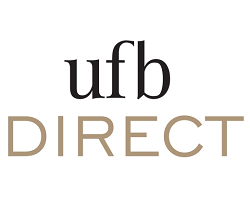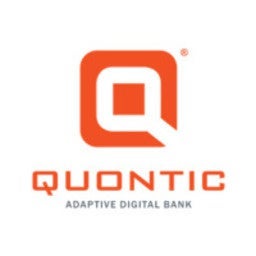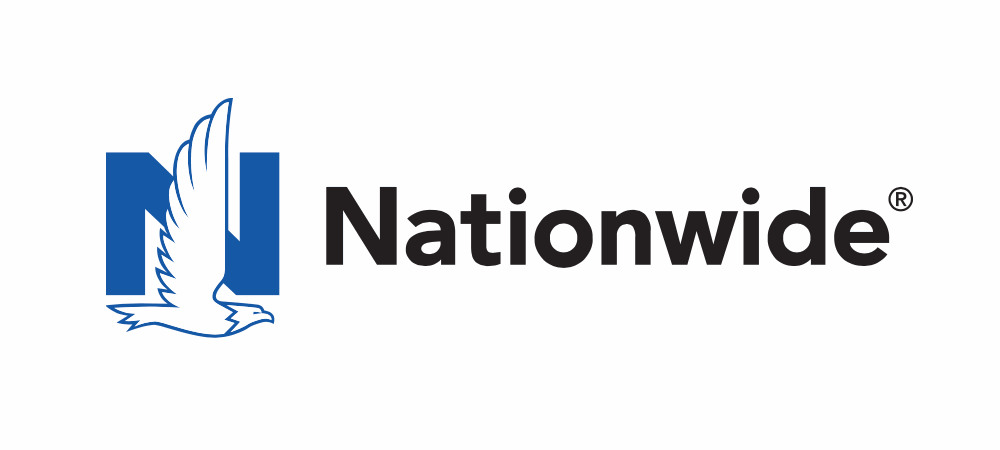It's normal to worry about where to put your money during a recession. A recession is a period of economic decline, and it can wreak havoc on investments. With so much uncertainty, people may wonder where it is best to keep their money. In the stock market? A savings or money market account? Maybe a certificate of deposit (CD)?
Here's the thing. The best place to put your money during a recession depends on your investment goals. Unsure what you're looking for? Keep reading. We'll compare the pros and cons of different investments so you can decide where to put your money with confidence.
Where to put money during a recession
Putting money in savings accounts, money market accounts, and CDs keeps your money safe in an FDIC-insured bank account (or NCUA-insured credit union account). Alternatively, invest in the stock market with a broker. Let's go over each of these options.
Stick it in a savings account
Savings accounts are safe places to store money you might need tomorrow. That's important in a recession: You may need support from your savings to pay bills.
Savings accounts have few restrictions on withdrawals. There used to be a limit of six savings account withdrawals per month under a federal law called Regulation D. This restriction is currently suspended, but some banks still impose withdrawal limits -- contact them or check their websites for details.
TIP
The Federal Reserve Board suspended Regulation D during the COVID-19 pandemic, and there are no plans to reinstate it. So right now, if you have money in a savings account, you can take it out as often as your bank allows.
All savings accounts earn interest. The amount of interest depends on which account you choose -- so make sure to shop around before settling on one. The best savings accounts offer high APYs (how much you'll earn in a year), up to 10x more than the national average.
Note: Online savings accounts usually have much higher APYs than those offered by traditional brick-and-mortar banks. The average savings account APY is less than 0.50%. Compare that to the APY on the following online savings accounts:
Compare savings rates
Make sure you're getting the best account for you by comparing savings rates and promotions. Here are some of our favorite high-yield savings accounts to consider.
Keep in mind that savings accounts APYs can fluctuate. They don't offer fixed interest rates like CDs. And over long periods of time, the stock market tends to offer much higher returns than savings accounts, online and offline.
During a recession, many investors put money in savings accounts to keep money handy and earn interest on savings. Consider investing in a savings account if you're building an emergency fund or prefer stable returns (right now, the top accounts offer rates around 4%-5%).
Pros
- Easy access to funds
- Open at any bank
- High APYs through online banks
- FDIC insured
Cons
- Low APYs at brick-and-mortar banks
- Withdrawing funds usually requires transfers
- APY can drop at any time
Invest in a money market account
Money market accounts combine features of savings and checking accounts. It's easy to access money kept in a money market account, plus they offer interest rates comparable with savings accounts. They may offer debit cards or check-writing capabilities, and like savings accounts, may have withdrawal limits.
The best money market accounts offer a winning combination of high APYs and easy access to your money.
The downside to money market accounts is their minimum balance requirements. You may need a minimum deposit to open the account and/or avoid monthly maintenance fees. That is problematic when you must drain your savings to cover an emergency expense -– you could be charged for doing so.
During a recession, many investors put money in money market accounts to keep money handy and earn higher-than-average bank rates. Consider investing in a money market account if you can afford the down payment and want easy access to most of your savings.
Pros
- Direct access to funds
- High APYs
- Open at any bank
- FDIC insured
Cons
- Potentially high minimum balance requirements
- APY can drop at any time
Here are a few examples of top money market accounts:
Quontic Money Market Account

- Competitive APY
- Debit card and checks available
- Few fees
- FDIC insured
- Difficult to deposit cash
The Quontic Money Market Account offers one of the most competitive APYs around, and its lack of common banking fees helps you keep more of what you earn in your pocket. The account is also pretty flexible when it comes to withdrawing your money, but depositing cash could be a challenge without any branches or deposit-taking ATMs.
Ally Money Market Account

- FDIC insured
- No monthly fee
- ATM access
- Checking privileges
- No cash deposits
- No branches
Ally's banking approach carries over to its money market account with a high APY and a focus on cutting routine account fees to $0, including monthly maintenance. What's more, there are no minimum balance requirements.
Sallie Mae Money Market

- FDIC insured
- Competitive APY
- No minimum balance
- No debit card
Sallie Mae Bank's money market account can grow your money at a competitive rate with no minimum deposits or fees. You can access savings through checks and electronically deposit funds into your account.
Invest in CDs
A certificate of deposit (CD) is a special type of bank account that offers a high APY. In exchange, you must agree not to withdraw your funds for a set period of time. The amount of time during which you don't withdraw your funds is called the CD term. These terms can be a few months or a few years. If you withdraw funds early, you typically pay a penalty.
The best CD rates are sometimes higher than the best savings account APYs. Additionally, most CDs lock in your APY. That's useful when APYs are falling (as they sometimes do during recessions). A CD is a stable option that earns you consistent returns.
When you invest in a CD while rates are high, you'll keep your higher rate regardless of nationally-falling rates. However, if rates start to rise, you could get stuck with lower rates.
During a recession, many investors put money in CDs to lock in rates or earn stable returns. Consider investing in a CD if you are comfortable with the interest rates and have no plans to withdraw the money before the term is up.
Pros
- Lock in your APY while rates are falling
- Earn high APYs on longer CD terms
- Open at any bank
- FDIC insured
Cons
- Limited access to funds
- APY locked in even when rates rise
Shopping for CDs? Browse top CD rates below.
| Bank & CD Offer | APY | Term | Min. Deposit | Next Steps |
|---|---|---|---|---|
|
Member FDIC.
| APY: 4.70% | Term: 1 Year | Min. Deposit: $2,500 | |
| APY: 5.05% | Term: 1 Year | Min. Deposit: $1 | ||
| APY: 5.15% | Term: 9 Months | Min. Deposit: $1 | ||
|
Member FDIC.
| APY: 4.75% | Term: 1 Year | Min. Deposit: $500 |
Invest in the stock market
You could make a lot more money by investing in the stock market, but the stock market can be volatile, especially during recessions. New investors should consider what to invest in during a recession.
The advantage of investing in stocks during a recession is that you can often buy at a discount. Stock prices tend to fall before and during a recession, then gradually recover. You can pay a lower price than usual for quality investments and benefit when the stock market rebounds.
You're technically free to cash out your investments whenever. However, it's best to only put money in the stock market if you don't plan to use it anytime soon. You don't want to invest cash you might need at a moment's notice. If you're in a tight spot, you might need to sell at a loss.
During a recession, many investors put money in stocks to earn high long-term returns. Consider investing in stocks if you don't need the money for emergency payments and are tolerant of risk -- in this case, losing money to poorly-performing companies.
Pros
- Large returns possible
- Variety of investment options
- Cash out whenever
Cons
- Risk of loss
- Can be intimidating for beginners
TIP
If you're looking for more in-depth information on banks, credit unions, and similar financial institutions, here are a few we've reviewed:
Still have questions?
Here are some other questions we've answered:
FAQs
-
Consider putting money you might need tomorrow in a savings or money market account. For longer-term investments, you can put cash in certificates of deposit (CDs) or the stock market. There are advantages to each -- do a little research before you plant your seeds of growth.
An emergency fund is a great hedge against unexpected costs. Consider putting three to six months of income in a high-yield savings account so you can withdraw the money when you need it most.
-
Depends on your investment horizon. Long-term investors with diversified portfolios may want to park their cash in a mix of savings, CDs, ETFs, and stocks. A diversified portfolio protects you against losses and maximizes the chance you'll earn a return on investment. It's worth noting that a recession typically drops the sticker price of many assets, including housing prices.
-
Probably not. You can withdraw savings to pay bills or reinvest as normal, but banks are somewhat recession-proof. Keep in mind, many banks are FDIC insured: your deposits are protected up to $250,000 per depositor, per bank. So even if your bank fails during a recession, the U.S. government has your back.
Our Banking Experts
We're firm believers in the Golden Rule, which is why editorial opinions are ours alone and have not been previously reviewed, approved, or endorsed by included advertisers. The Ascent, a Motley Fool service, does not cover all offers on the market. The Ascent has a dedicated team of editors and analysts focused on personal finance, and they follow the same set of publishing standards and editorial integrity while maintaining professional separation from the analysts and editors on other Motley Fool brands.






